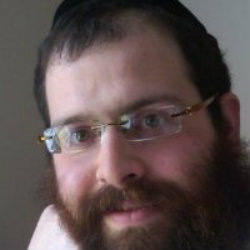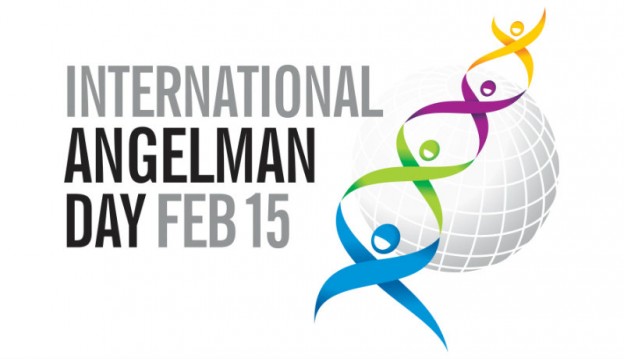
Resources  Angelman Syndrome (often abbreviated AS) is a severe neurological disorder characterized by profound developmental delays, problems with motor coordination (ataxia) and balance, and epilepsy. Individuals with AS do not develop functional speech.
The seizure disorder in individuals with Angelman Syndrome can be difficult to treat. Feeding disorders in infancy are common and some persist throughout childhood. Sleeping difficulties are commonly noted in individuals with Angelman Syndrome.
AS affects all races and both genders equally. About 50% of people with Angelman Syndrome are misdiagnosed with Autism or Cerebral Palsy.
Angelman Syndrome (often abbreviated AS) is a severe neurological disorder characterized by profound developmental delays, problems with motor coordination (ataxia) and balance, and epilepsy. Individuals with AS do not develop functional speech.
The seizure disorder in individuals with Angelman Syndrome can be difficult to treat. Feeding disorders in infancy are common and some persist throughout childhood. Sleeping difficulties are commonly noted in individuals with Angelman Syndrome.
AS affects all races and both genders equally. About 50% of people with Angelman Syndrome are misdiagnosed with Autism or Cerebral Palsy.
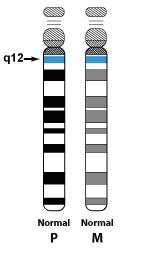 Angelman Syndrome is a genetic disorder. It's most often caused by problems with a gene located on chromosome 15 called the ubiquitin-protein ligase E3A (UBE3A) gene.
Genes are segments of DNA that provide the blueprints for all of your characteristics. You receive your genes, which occur in pairs, from your parents. One copy comes from your mother (maternal copy), and the other copy comes from your father (paternal copy).
A missing or defective gene
Both genes in a pair usually are active. This means that your cells use information from both the maternal copy and the paternal copy of each gene pair. But in a small number of genes, only one copy of a gene pair is active. The activity of each gene copy depends on whether it was passed from your mother or from your father. This parent-specific gene activity is called imprinting. In these genes, when the copy that's usually active is missing or defective, it causes problems in the functions and characteristics controlled by that gene.
Normally, only the maternal copy of the UBE3A gene is active in the brain, caused by what's known as genomic imprinting. Most cases of Angelman syndrome occur when part of the maternal chromosome 15, which contains this gene, is missing or damaged. In a small number of cases, Angelman syndrome is caused when two paternal copies of the gene are inherited, instead of one paternal and one maternal copy (paternal uniparental disomy).
*How Angleman Syndrome Works is taken from the Mayo Clinic Website
Angelman Syndrome is a genetic disorder. It's most often caused by problems with a gene located on chromosome 15 called the ubiquitin-protein ligase E3A (UBE3A) gene.
Genes are segments of DNA that provide the blueprints for all of your characteristics. You receive your genes, which occur in pairs, from your parents. One copy comes from your mother (maternal copy), and the other copy comes from your father (paternal copy).
A missing or defective gene
Both genes in a pair usually are active. This means that your cells use information from both the maternal copy and the paternal copy of each gene pair. But in a small number of genes, only one copy of a gene pair is active. The activity of each gene copy depends on whether it was passed from your mother or from your father. This parent-specific gene activity is called imprinting. In these genes, when the copy that's usually active is missing or defective, it causes problems in the functions and characteristics controlled by that gene.
Normally, only the maternal copy of the UBE3A gene is active in the brain, caused by what's known as genomic imprinting. Most cases of Angelman syndrome occur when part of the maternal chromosome 15, which contains this gene, is missing or damaged. In a small number of cases, Angelman syndrome is caused when two paternal copies of the gene are inherited, instead of one paternal and one maternal copy (paternal uniparental disomy).
*How Angleman Syndrome Works is taken from the Mayo Clinic Website
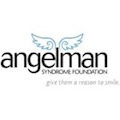 The Angelman Syndrome Foundation's mission is to advance the awareness and treatment of Angelman syndrome through education, information, research, and support for individuals with Angelman syndrome. The Angelman Syndrome Website provides a comprehensive explanation of AS, Provides information about the latest research, and much more. The ultimate goal of ASF is to find a cure.
The Angelman Syndrome Foundation's mission is to advance the awareness and treatment of Angelman syndrome through education, information, research, and support for individuals with Angelman syndrome. The Angelman Syndrome Website provides a comprehensive explanation of AS, Provides information about the latest research, and much more. The ultimate goal of ASF is to find a cure.
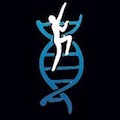 The Foundation for Angelman Syndrome Therapeutics (or FAST) is an organization of families and professionals dedicated to finding a cure for Angelman Syndrome and related disorders through the funding of an aggressive research agenda, education, and advocacy.
The Foundation for Angelman Syndrome Therapeutics (or FAST) is an organization of families and professionals dedicated to finding a cure for Angelman Syndrome and related disorders through the funding of an aggressive research agenda, education, and advocacy.
 Assert stands for the Angelman Syndrome Support Education and Trust. They are a UK based charity that focuses on support for those close to Angelman Syndrome, including families, caregivers, and professionals. They also focus on providing information and resources for all ages regarding Angelman Syndrome, drawing on the vast knowledge of the trustees and experts panels. Their website is updated regularly with news, research, and support tips for families. Assert as an organization is made up of volunteers and experts all able to answer and provide advice on complicated Angelman issues.
Assert stands for the Angelman Syndrome Support Education and Trust. They are a UK based charity that focuses on support for those close to Angelman Syndrome, including families, caregivers, and professionals. They also focus on providing information and resources for all ages regarding Angelman Syndrome, drawing on the vast knowledge of the trustees and experts panels. Their website is updated regularly with news, research, and support tips for families. Assert as an organization is made up of volunteers and experts all able to answer and provide advice on complicated Angelman issues.
 Canadian Angelman Syndrome Society (CASS) is dedicated to educating parents and professionals about Angelman Syndrome by disseminating information and providing support for parents and caregivers of children with Angelman Syndrome. They also hold an annual international conference, bringing the most knowledgeable speakers from around the world to Canada.
Canadian Angelman Syndrome Society (CASS) is dedicated to educating parents and professionals about Angelman Syndrome by disseminating information and providing support for parents and caregivers of children with Angelman Syndrome. They also hold an annual international conference, bringing the most knowledgeable speakers from around the world to Canada.
 The Australian Angelman Syndrome Association was founded in 1993. Since then the organization hosts a yearly conference and runs a clinic which aims to:
• Help support families, children and adults living with this condition
• Coordinate existing medical treatments in consultation with clinical specialists
• Provide access to psychological and educational assessments/services
• Provide a platform for accessing and developing integrated research
• Facilitate family counselling.
The Australian Angelman Syndrome Association was founded in 1993. Since then the organization hosts a yearly conference and runs a clinic which aims to:
• Help support families, children and adults living with this condition
• Coordinate existing medical treatments in consultation with clinical specialists
• Provide access to psychological and educational assessments/services
• Provide a platform for accessing and developing integrated research
• Facilitate family counselling.
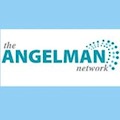 The Angelman Network was established as a Charitable Trust in New Zealand in 2011. They seek to connect and support people impacted by Angelman Syndrome. The Angelman Network is dedicated to providing information on Angelman Syndrome, promoting awareness, support New Zealand families affected by AS, and contribute to the progress being made with world-wide research on AS.
The Angelman Network was established as a Charitable Trust in New Zealand in 2011. They seek to connect and support people impacted by Angelman Syndrome. The Angelman Network is dedicated to providing information on Angelman Syndrome, promoting awareness, support New Zealand families affected by AS, and contribute to the progress being made with world-wide research on AS.
 The UNC Comprehensive Angelman Syndrome Clinic brings together multiple subspecialists into one setting to address the complex medical and psycho-educational needs of individuals with Angelman Syndrome. Because each person with requires different treatment options, the clinic at UNC has access to a wide range of therapists and specialists available, including: clinical geneticist, neurologist, psychiatrist, psychologist, speech language pathologist, physical/occupational therapist, genetic counselor, social worker, and nutritionist.
The UNC Comprehensive Angelman Syndrome Clinic brings together multiple subspecialists into one setting to address the complex medical and psycho-educational needs of individuals with Angelman Syndrome. Because each person with requires different treatment options, the clinic at UNC has access to a wide range of therapists and specialists available, including: clinical geneticist, neurologist, psychiatrist, psychologist, speech language pathologist, physical/occupational therapist, genetic counselor, social worker, and nutritionist.
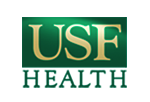 University of South Florida's Neurobiology of Learning and Memory Lab has multiple ongoing research projects focusing on understanding Angelman Syndrome and future therapeutic intervention. There is also a section dedicated to FAQ of parents. This is great place for those close to AS to learn more about the current research being done in this field.
University of South Florida's Neurobiology of Learning and Memory Lab has multiple ongoing research projects focusing on understanding Angelman Syndrome and future therapeutic intervention. There is also a section dedicated to FAQ of parents. This is great place for those close to AS to learn more about the current research being done in this field.
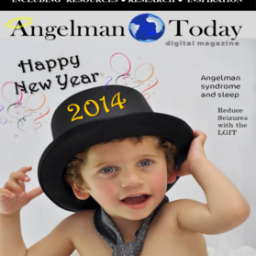 Angelman Today is an online magazine that provides the latest updates and news about Angelman Syndrome. Angelman Today, share all the latest updates and articles from Angelman Associations from around the world. In addition Angelman today provides important tips to keep children with AS healthy.
Angelman Today is an online magazine that provides the latest updates and news about Angelman Syndrome. Angelman Today, share all the latest updates and articles from Angelman Associations from around the world. In addition Angelman today provides important tips to keep children with AS healthy.
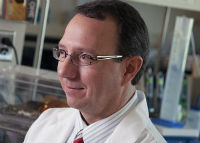 There has been some amazing work being done in researching a cause and cure of Angelman Syndrome. To discuss the latest research we interviewed Dr, Edwin Weeber, a leading researcher in treatment of Angelman Syndrome.
There has been some amazing work being done in researching a cause and cure of Angelman Syndrome. To discuss the latest research we interviewed Dr, Edwin Weeber, a leading researcher in treatment of Angelman Syndrome.
What You Need to Know About Angelman Syndrome
Every year on February 15 International Angelman Awareness Day is held. This day is dedicated to raising awareness for Angelman Syndrome. In order to do our part to help raise awareness, here are some great resources for Angelman Syndrome.What is Angelman Syndrome?
 Angelman Syndrome (often abbreviated AS) is a severe neurological disorder characterized by profound developmental delays, problems with motor coordination (ataxia) and balance, and epilepsy. Individuals with AS do not develop functional speech.
The seizure disorder in individuals with Angelman Syndrome can be difficult to treat. Feeding disorders in infancy are common and some persist throughout childhood. Sleeping difficulties are commonly noted in individuals with Angelman Syndrome.
AS affects all races and both genders equally. About 50% of people with Angelman Syndrome are misdiagnosed with Autism or Cerebral Palsy.
Angelman Syndrome (often abbreviated AS) is a severe neurological disorder characterized by profound developmental delays, problems with motor coordination (ataxia) and balance, and epilepsy. Individuals with AS do not develop functional speech.
The seizure disorder in individuals with Angelman Syndrome can be difficult to treat. Feeding disorders in infancy are common and some persist throughout childhood. Sleeping difficulties are commonly noted in individuals with Angelman Syndrome.
AS affects all races and both genders equally. About 50% of people with Angelman Syndrome are misdiagnosed with Autism or Cerebral Palsy.
How Angelman Syndrome Works
 Angelman Syndrome is a genetic disorder. It's most often caused by problems with a gene located on chromosome 15 called the ubiquitin-protein ligase E3A (UBE3A) gene.
Genes are segments of DNA that provide the blueprints for all of your characteristics. You receive your genes, which occur in pairs, from your parents. One copy comes from your mother (maternal copy), and the other copy comes from your father (paternal copy).
A missing or defective gene
Both genes in a pair usually are active. This means that your cells use information from both the maternal copy and the paternal copy of each gene pair. But in a small number of genes, only one copy of a gene pair is active. The activity of each gene copy depends on whether it was passed from your mother or from your father. This parent-specific gene activity is called imprinting. In these genes, when the copy that's usually active is missing or defective, it causes problems in the functions and characteristics controlled by that gene.
Normally, only the maternal copy of the UBE3A gene is active in the brain, caused by what's known as genomic imprinting. Most cases of Angelman syndrome occur when part of the maternal chromosome 15, which contains this gene, is missing or damaged. In a small number of cases, Angelman syndrome is caused when two paternal copies of the gene are inherited, instead of one paternal and one maternal copy (paternal uniparental disomy).
*How Angleman Syndrome Works is taken from the Mayo Clinic Website
Angelman Syndrome is a genetic disorder. It's most often caused by problems with a gene located on chromosome 15 called the ubiquitin-protein ligase E3A (UBE3A) gene.
Genes are segments of DNA that provide the blueprints for all of your characteristics. You receive your genes, which occur in pairs, from your parents. One copy comes from your mother (maternal copy), and the other copy comes from your father (paternal copy).
A missing or defective gene
Both genes in a pair usually are active. This means that your cells use information from both the maternal copy and the paternal copy of each gene pair. But in a small number of genes, only one copy of a gene pair is active. The activity of each gene copy depends on whether it was passed from your mother or from your father. This parent-specific gene activity is called imprinting. In these genes, when the copy that's usually active is missing or defective, it causes problems in the functions and characteristics controlled by that gene.
Normally, only the maternal copy of the UBE3A gene is active in the brain, caused by what's known as genomic imprinting. Most cases of Angelman syndrome occur when part of the maternal chromosome 15, which contains this gene, is missing or damaged. In a small number of cases, Angelman syndrome is caused when two paternal copies of the gene are inherited, instead of one paternal and one maternal copy (paternal uniparental disomy).
*How Angleman Syndrome Works is taken from the Mayo Clinic Website
What are the Symptoms of Angelman Syndrome?
- Developmental delay, functionally severe
- Speech impairment, no or minimal use of words; receptive and non-verbal communication skills higher than verbal ones
- A happy demeanor – frequent laughing, smiling and excitability
- Movement or balance disorder, usually ataxia of gait and/or tremulous movement of limbs
- Behavioral uniqueness: any combination of frequent laughter/smiling; apparent happy demeanor; easily excitable personality, often with hand flapping movements; hypermotoric behavior; short attention span
- Delayed, disproportionate growth in head circumference, usually resulting in microcephaly (absolute or relative) by age 2
- Seizures
- Abnormal EEG, characteristic pattern with large amplitude slow-spike waves
- In infants 0-24 months: Lack of cooing or babbling and inability to support one’s head, pull oneself up to stand and delayed motor skills
What are the Treatment Options?
There is no cure for Angelman syndrome. Generally, treatment focuses on managing the medical and developmental problems that the chromosome defects cause. Symptoms will be treated individually either through medication or different therapies.Angelman Syndrome Resources
Here are nine organizations,clinics and research organizations that provide information, guidance and support for individuals with Angelman Syndrome.1. Angelman Syndrome Foundation
 The Angelman Syndrome Foundation's mission is to advance the awareness and treatment of Angelman syndrome through education, information, research, and support for individuals with Angelman syndrome. The Angelman Syndrome Website provides a comprehensive explanation of AS, Provides information about the latest research, and much more. The ultimate goal of ASF is to find a cure.
The Angelman Syndrome Foundation's mission is to advance the awareness and treatment of Angelman syndrome through education, information, research, and support for individuals with Angelman syndrome. The Angelman Syndrome Website provides a comprehensive explanation of AS, Provides information about the latest research, and much more. The ultimate goal of ASF is to find a cure.
2. Foundation of Angelman Syndrome Therapeutics
 The Foundation for Angelman Syndrome Therapeutics (or FAST) is an organization of families and professionals dedicated to finding a cure for Angelman Syndrome and related disorders through the funding of an aggressive research agenda, education, and advocacy.
The Foundation for Angelman Syndrome Therapeutics (or FAST) is an organization of families and professionals dedicated to finding a cure for Angelman Syndrome and related disorders through the funding of an aggressive research agenda, education, and advocacy.
3. Assert
 Assert stands for the Angelman Syndrome Support Education and Trust. They are a UK based charity that focuses on support for those close to Angelman Syndrome, including families, caregivers, and professionals. They also focus on providing information and resources for all ages regarding Angelman Syndrome, drawing on the vast knowledge of the trustees and experts panels. Their website is updated regularly with news, research, and support tips for families. Assert as an organization is made up of volunteers and experts all able to answer and provide advice on complicated Angelman issues.
Assert stands for the Angelman Syndrome Support Education and Trust. They are a UK based charity that focuses on support for those close to Angelman Syndrome, including families, caregivers, and professionals. They also focus on providing information and resources for all ages regarding Angelman Syndrome, drawing on the vast knowledge of the trustees and experts panels. Their website is updated regularly with news, research, and support tips for families. Assert as an organization is made up of volunteers and experts all able to answer and provide advice on complicated Angelman issues.
4. Canadian Angelman Syndrome Society
 Canadian Angelman Syndrome Society (CASS) is dedicated to educating parents and professionals about Angelman Syndrome by disseminating information and providing support for parents and caregivers of children with Angelman Syndrome. They also hold an annual international conference, bringing the most knowledgeable speakers from around the world to Canada.
Canadian Angelman Syndrome Society (CASS) is dedicated to educating parents and professionals about Angelman Syndrome by disseminating information and providing support for parents and caregivers of children with Angelman Syndrome. They also hold an annual international conference, bringing the most knowledgeable speakers from around the world to Canada.
5. Angelman Syndrome Association of Australia
 The Australian Angelman Syndrome Association was founded in 1993. Since then the organization hosts a yearly conference and runs a clinic which aims to:
• Help support families, children and adults living with this condition
• Coordinate existing medical treatments in consultation with clinical specialists
• Provide access to psychological and educational assessments/services
• Provide a platform for accessing and developing integrated research
• Facilitate family counselling.
The Australian Angelman Syndrome Association was founded in 1993. Since then the organization hosts a yearly conference and runs a clinic which aims to:
• Help support families, children and adults living with this condition
• Coordinate existing medical treatments in consultation with clinical specialists
• Provide access to psychological and educational assessments/services
• Provide a platform for accessing and developing integrated research
• Facilitate family counselling.
6. Angelman Network
 The Angelman Network was established as a Charitable Trust in New Zealand in 2011. They seek to connect and support people impacted by Angelman Syndrome. The Angelman Network is dedicated to providing information on Angelman Syndrome, promoting awareness, support New Zealand families affected by AS, and contribute to the progress being made with world-wide research on AS.
The Angelman Network was established as a Charitable Trust in New Zealand in 2011. They seek to connect and support people impacted by Angelman Syndrome. The Angelman Network is dedicated to providing information on Angelman Syndrome, promoting awareness, support New Zealand families affected by AS, and contribute to the progress being made with world-wide research on AS.
7. University of North Carolina
 The UNC Comprehensive Angelman Syndrome Clinic brings together multiple subspecialists into one setting to address the complex medical and psycho-educational needs of individuals with Angelman Syndrome. Because each person with requires different treatment options, the clinic at UNC has access to a wide range of therapists and specialists available, including: clinical geneticist, neurologist, psychiatrist, psychologist, speech language pathologist, physical/occupational therapist, genetic counselor, social worker, and nutritionist.
The UNC Comprehensive Angelman Syndrome Clinic brings together multiple subspecialists into one setting to address the complex medical and psycho-educational needs of individuals with Angelman Syndrome. Because each person with requires different treatment options, the clinic at UNC has access to a wide range of therapists and specialists available, including: clinical geneticist, neurologist, psychiatrist, psychologist, speech language pathologist, physical/occupational therapist, genetic counselor, social worker, and nutritionist.
8. University of South Florida
 University of South Florida's Neurobiology of Learning and Memory Lab has multiple ongoing research projects focusing on understanding Angelman Syndrome and future therapeutic intervention. There is also a section dedicated to FAQ of parents. This is great place for those close to AS to learn more about the current research being done in this field.
University of South Florida's Neurobiology of Learning and Memory Lab has multiple ongoing research projects focusing on understanding Angelman Syndrome and future therapeutic intervention. There is also a section dedicated to FAQ of parents. This is great place for those close to AS to learn more about the current research being done in this field.
9. Angelman Today
 Angelman Today is an online magazine that provides the latest updates and news about Angelman Syndrome. Angelman Today, share all the latest updates and articles from Angelman Associations from around the world. In addition Angelman today provides important tips to keep children with AS healthy.
Angelman Today is an online magazine that provides the latest updates and news about Angelman Syndrome. Angelman Today, share all the latest updates and articles from Angelman Associations from around the world. In addition Angelman today provides important tips to keep children with AS healthy.
An Interview with Dr. Edwin Weeber
 There has been some amazing work being done in researching a cause and cure of Angelman Syndrome. To discuss the latest research we interviewed Dr, Edwin Weeber, a leading researcher in treatment of Angelman Syndrome.
There has been some amazing work being done in researching a cause and cure of Angelman Syndrome. To discuss the latest research we interviewed Dr, Edwin Weeber, a leading researcher in treatment of Angelman Syndrome. 
